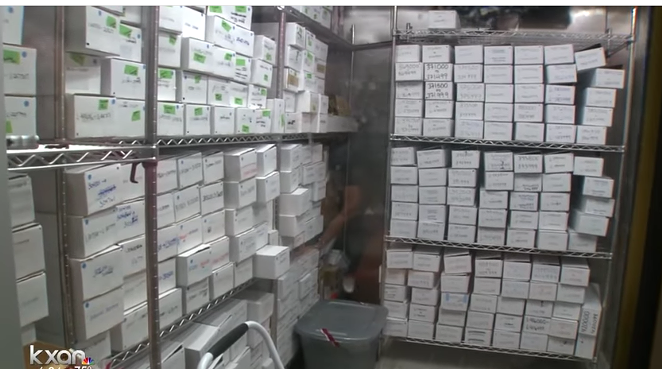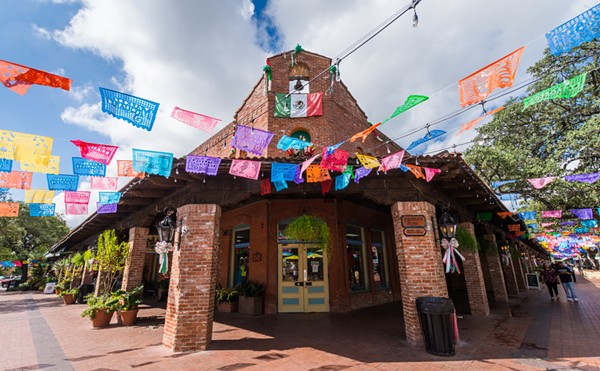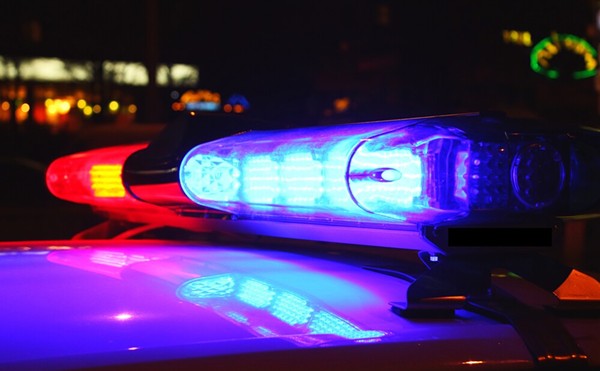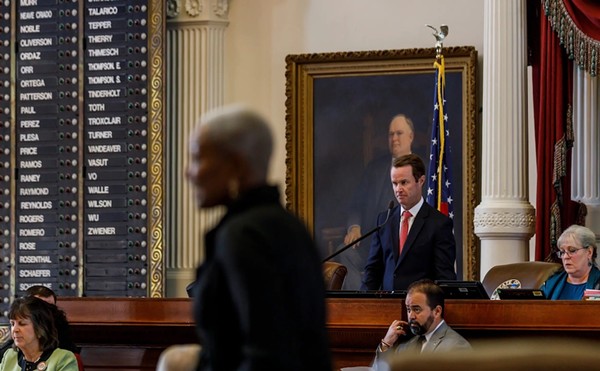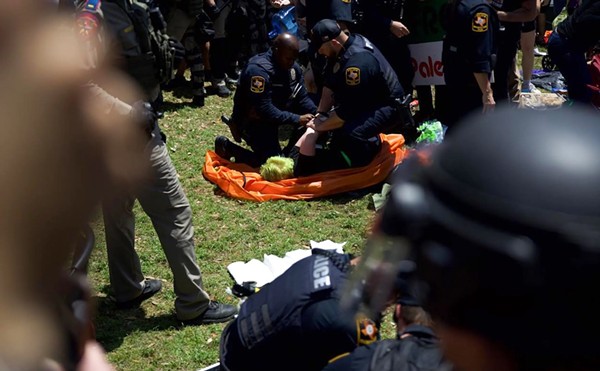Bexar County's Forensic Lab Isn't Thrilled With State Plans to Address Rape Kit Backlog
By Alex Zielinski on Tue, Apr 11, 2017 at 4:30 pm
On Tuesday, the Texas House unanimously passed a bill that would create an online database for all DNA evidence collected from sexual assault and rape cases statewide. That way victims could easily track the status of their rape kit tests — an often invasive procedure that few victims ever know the results of — and the state wouldn't be as likely to lose data, according to the bill’s author, Rep. Donna Howard, an Austin Democrat.
Howard says the bill creates an “efficient and effective way of tracking this so we can actually bring justice to these horrific sexual assaults,” according to the Austin American-Statesman. While it won’t do much to chip away at the state’s backlog of some 20,000 untested rape kits, Howard contends the measure will bring needed transparency to the process — and her colleagues in the Texas House seem to agree.
The current rape kit database for the state hasn’t been updated since 2011. If passed, Howard's bill would give $1.5 million to the Department of Public Safety to reboot the database, relying on local jurisdictions to submit their forensic data to the state.
This last piece of the bill is what gives Bexar County Crime Lab director Timothy Fallon pause. To him, the measure risks exacerbating the already glacial pace of rape kit testing across the state.
“That just creates more work for the laboratories that are trying to process these kits,” Fallon said. “Who’s going to submit all this data online and keep track of new information? It will fall on us.”
Tuesday’s vote comes just a week after the House voted to pass a bill letting Texans donate $1 to state rape kit testing when they apply or renew their driver’s license. The biggest problem with both these bills, Fallon said, is that neither explicitly suggest hiring additional staff. Fallon’s team of seven — which hasn’t grown since 2011 — already carries a heavy workload.
“It makes no sense to increase capacity without increasing workforce,” he said. “These kits are already coming in faster than we can handle.”
Fallon said his office receives an average of 55 rape kits a month — a number that’s only increased in recent years. Currently, the county has about 115 rape kits waiting to be tested. According to Fallon, this means they’re “not in bad shape” — at least compared to other cities, like Dallas, which has a backlog of some 4,000 kits the state's 20,000 rape kit backlog.
But Fallon predicts this bill will only worsen the problem. The only alternative, he notes, would be outsourcing testing to private lab companies, something the Austin Police Department began doing in December.
Asked why he thinks lawmakers don't truly understand the actual needs of regional crime labs, Fallon was blunt.
“I don’t know,” he said. “Maybe they never asked.”
Howard says the bill creates an “efficient and effective way of tracking this so we can actually bring justice to these horrific sexual assaults,” according to the Austin American-Statesman. While it won’t do much to chip away at the state’s backlog of some 20,000 untested rape kits, Howard contends the measure will bring needed transparency to the process — and her colleagues in the Texas House seem to agree.
The current rape kit database for the state hasn’t been updated since 2011. If passed, Howard's bill would give $1.5 million to the Department of Public Safety to reboot the database, relying on local jurisdictions to submit their forensic data to the state.
This last piece of the bill is what gives Bexar County Crime Lab director Timothy Fallon pause. To him, the measure risks exacerbating the already glacial pace of rape kit testing across the state.
“That just creates more work for the laboratories that are trying to process these kits,” Fallon said. “Who’s going to submit all this data online and keep track of new information? It will fall on us.”
Tuesday’s vote comes just a week after the House voted to pass a bill letting Texans donate $1 to state rape kit testing when they apply or renew their driver’s license. The biggest problem with both these bills, Fallon said, is that neither explicitly suggest hiring additional staff. Fallon’s team of seven — which hasn’t grown since 2011 — already carries a heavy workload.
“It makes no sense to increase capacity without increasing workforce,” he said. “These kits are already coming in faster than we can handle.”
Fallon said his office receives an average of 55 rape kits a month — a number that’s only increased in recent years. Currently, the county has about 115 rape kits waiting to be tested. According to Fallon, this means they’re “not in bad shape” — at least compared to other cities, like Dallas, which has a backlog of some 4,000 kits the state's 20,000 rape kit backlog.
But Fallon predicts this bill will only worsen the problem. The only alternative, he notes, would be outsourcing testing to private lab companies, something the Austin Police Department began doing in December.
Asked why he thinks lawmakers don't truly understand the actual needs of regional crime labs, Fallon was blunt.
“I don’t know,” he said. “Maybe they never asked.”

KEEP SA CURRENT!
Since 1986, the SA Current has served as the free, independent voice of San Antonio, and we want to keep it that way.
Becoming an SA Current Supporter for as little as $5 a month allows us to continue offering readers access to our coverage of local news, food, nightlife, events, and culture with no paywalls.
Scroll to read more San Antonio News articles
Newsletters
Join SA Current Newsletters
Subscribe now to get the latest news delivered right to your inbox.

